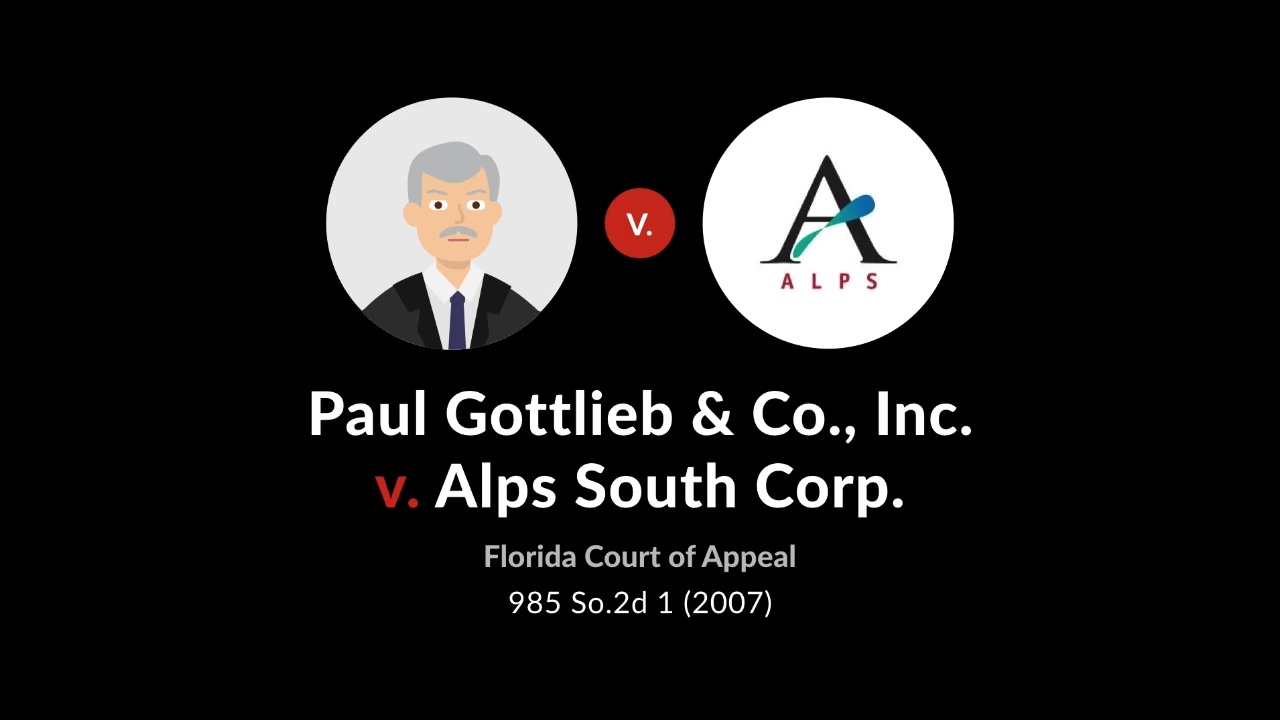In the annals of contract law, Paul Gottlieb & Co. Inc. v. Alps South Corp. stands as a pivotal case that has profoundly shaped the legal landscape.
This case brought forth complex issues of contract interpretation, property rights, and the interplay between bankruptcy law and contract law, leaving an enduring legacy that continues to influence legal decisions today.
The dispute arose from a failed real estate transaction involving the sale of a shopping center. The intricacies of the contract, coupled with the subsequent bankruptcy of one of the parties, created a legal quagmire that required the courts to carefully navigate the boundaries of contract law and property rights.
Case Summary

In Paul Gottlieb & Co. Inc. v. Alps South Corp., the United States Supreme Court ruled that a bankruptcy court has the authority to determine the validity of a secured creditor’s claim and to order the return of property that was wrongfully seized.
The case involved a dispute between Paul Gottlieb & Co. Inc., a secured creditor, and Alps South Corp., a Chapter 11 debtor. Gottlieb had obtained a security interest in Alps South’s assets, but Alps South subsequently filed for bankruptcy and the bankruptcy court ordered the return of the assets to Alps South.
Gottlieb appealed, arguing that the bankruptcy court did not have the authority to determine the validity of its secured claim.
The Supreme Court held that the bankruptcy court did have the authority to determine the validity of Gottlieb’s secured claim and to order the return of the assets. The Court reasoned that the bankruptcy court has broad powers to administer the bankruptcy estate and to ensure that creditors are treated fairly.
Legal Principles

The Supreme Court applied several legal principles in its decision in Paul Gottlieb & Co. Inc. v. Alps South Corp., including:
- The Bankruptcy Code gives bankruptcy courts broad powers to administer the bankruptcy estate and to ensure that creditors are treated fairly.
- A secured creditor has a right to the collateral that secures its claim.
- A bankruptcy court has the authority to determine the validity of a secured creditor’s claim and to order the return of property that was wrongfully seized.
Factual Background
Paul Gottlieb & Co. Inc. was a secured creditor of Alps South Corp. Gottlieb had obtained a security interest in Alps South’s assets to secure a loan. Alps South subsequently filed for bankruptcy under Chapter 11 of the Bankruptcy Code.
After Alps South filed for bankruptcy, the bankruptcy court ordered the return of the assets to Alps South. Gottlieb appealed, arguing that the bankruptcy court did not have the authority to determine the validity of its secured claim.
Procedural History

The bankruptcy court ruled in favor of Alps South, holding that it had the authority to determine the validity of Gottlieb’s secured claim and to order the return of the assets. Gottlieb appealed the bankruptcy court’s decision to the district court, which affirmed the bankruptcy court’s decision.
Gottlieb then appealed the district court’s decision to the United States Supreme Court, which granted certiorari.
Impact and Legacy

The Supreme Court’s decision in Paul Gottlieb & Co. Inc. v. Alps South Corp.has had a significant impact on the legal landscape. The decision clarified the authority of bankruptcy courts to determine the validity of secured claims and to order the return of property that was wrongfully seized.
The decision has also been cited in subsequent cases involving the rights of secured creditors in bankruptcy.
FAQ Corner: Paul Gottlieb & Co. Inc. V. Alps South Corp.
What was the central legal issue in Paul Gottlieb & Co. Inc. v. Alps South Corp.?
The central legal issue was the interpretation of a contract for the sale of a shopping center, specifically whether the contract was binding on the parties despite the subsequent bankruptcy of one of the parties.
How did the court resolve the issue of contract interpretation?
The court applied the doctrine of anticipatory breach, holding that the bankrupt party’s filing for bankruptcy constituted an anticipatory breach of the contract, which excused the other party from further performance.
What was the significance of the court’s decision in Paul Gottlieb & Co. Inc. v. Alps South Corp.?
The decision clarified the application of the doctrine of anticipatory breach in the context of bankruptcy and provided guidance on the interplay between contract law and bankruptcy law.